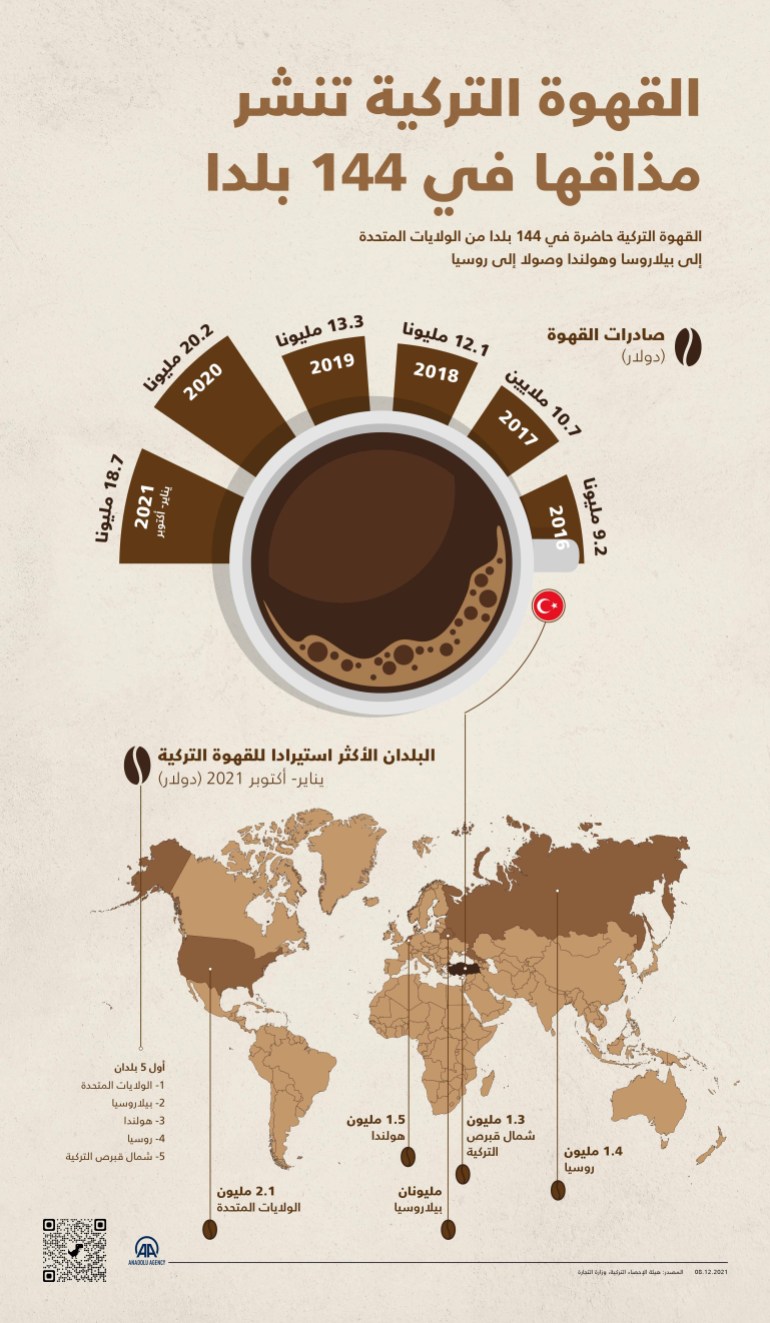A recent study reported by the French newspaper "Le Parisien" found that drinking coffee regularly improves symptoms of dyskinesia, a very rare genetic neurological disease.
According to a statement issued by l'Institut du Cerveau in collaboration with the National Institute of Health and Medical Research (Inserm) and the General Aid de Hospitals de Paris (AP-HP), this new study confirms "the potential of caffeine in the treatment of this disease." nervous."
The study, published in the Journal of Movement Disorders, sought to confirm isolated preliminary data on the effectiveness of coffee against "dyskinesia" linked to a gene called ADCY5.
Uncontrollable movements
This condition is extremely rare but very debilitating and causes many involuntary movements, and there is no known cure yet.
Three years ago, French doctors, including neurologists Emmanuel Flamand-Rose and Aurelie Minert, noticed a possible positive effect of caffeine in an 11-year-old child with the disease.
This discovery was by chance, as the child drank regular coffee and then decaffeinated coffee by mistake (which was a placebo), but it remains just an isolated case and the result needs to be confirmed.
To do this, Minret and Flemand-Rose examined data on 30 patients of all ages who consumed caffeine.
They noted that 26 of them improved their symptoms after consuming caffeine, while the condition of 3 others worsened.
Caffeine has a positive effect
Caffeine had a positive effect in the majority of patients, including children.
The authors conclude, "This study supports the hypothesis of a beneficial effect of caffeine in patients with dyskinesias associated with the ADCY5 gene."
This study was conducted on a limited sample without being able to establish a direct cause-and-effect link, particularly by comparing the effects of caffeine with a placebo.
"Given the rarity of dyskinesia associated with the ADCY5 gene and the fact that caffeine is such a large part of everyday life, it is very difficult to conduct a conventional randomized study" using a placebo, the researchers noted.
The study concluded that these results are a priority, and further research is needed to prove them.

